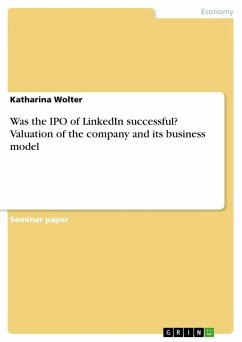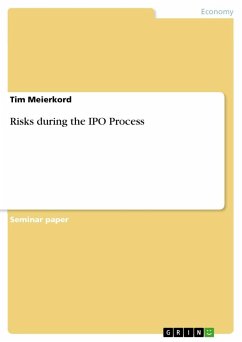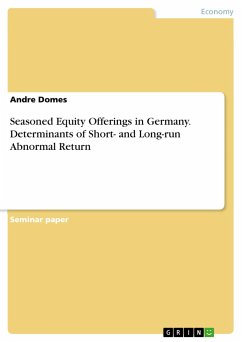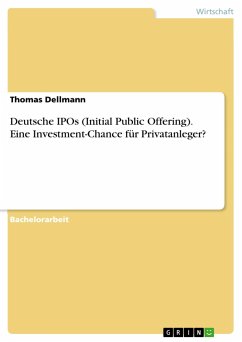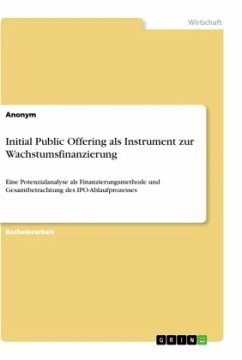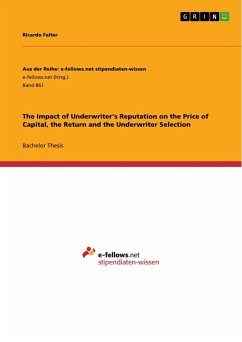Seminar paper from the year 2016 in the subject Business economics - Investment and Finance, grade: 1.0, Technical University of Munich (Financial Management and Capital Markets), course: Executive MBA in Innovation & Business Creation, language: English, abstract: This paper explores LinkedIn's business model (including opportunities and threats), as well as the corporation's competitive landscape and the details of the initial public offering (IPO). In this paper different approaches to assess a company value will be discussed, followed by an examination of LinkedIn's company value by carrying out a multiple analysis. A special emphasize will be taken on the closing price for LinkedIn shares on the IPO (and also a few weeks later on July 7, 2011), were the company was worth 592 times its 2010 earnings. The research evaluates if the company could possibly be worth that much or if a general hype for social media company´s has taken over.Why and to what extent, an IPO is successful, lies always in the opinion of the different stakeholders of this event. Obviously there are two main stakeholders: the company owners and the investors. For company owners, an IPO will be about developing their company to the next stage. Raising new capital for investment, attracting and incentivizing the best talent, and establishing a liquid currency for the future. For them, valuation1 at IPO and a healthy aftermarket with a steady appreciation in the value of the shares as the company develops, will be key. For investors obviously an IPO is successful, if the share price is going up, not down. But since nobody can tell that for sure, how do you decide if you invest your money at an initial public offering of a certain company? There are various ways to do that, some people decide just to go with the flow, jumping on a train that's already under full force (e.g. dot.com hype). Other will do an extended research for the opportunities, growth potential and threats of the business model, as well as the possible competitors and challenges they will face in the future. Some, on the other hand, will go for the figures and financial analyses. Since there is a saying "the only statistics you can trust are those you falsified yourself" (mostly allocated to Winston Churchill, but not verified), it seems logical to build the decision on all three factors.
Hinweis: Dieser Artikel kann nur an eine deutsche Lieferadresse ausgeliefert werden.
Hinweis: Dieser Artikel kann nur an eine deutsche Lieferadresse ausgeliefert werden.

